UNDERSTANDING YOUR TREATMENT OPTIONS
Understanding the different types of HIV medications available to you can make it easier to talk to your doctor about your treatment options.
Even if you’re happy with your current HIV treatment, it’s always a good idea to keep up to date the latest advances in HIV care and discuss them with your healthcare team. There could be an alternative treatment out there that suits your lifestyle better, reduces the amount of medicine you’re taking, has fewer side effects or is better for your long-term health.
HOW DO YOU FIND A HIV TREATMENT THAT FITS YOU?
When it comes to your treatment, finding the right option for you is about more than simply keeping HIV in check or becoming undetectable. Many people living with HIV who are undetectable still report lots of other treatment side effects which may happen over time such as fatigue, insomnia, sadness, sexual dysfunction and changes to their appearance.4
Your HIV treatment should fit around you and your lifestyle, not the other way round. This includes the combination of medicines you take, and how and when you take it. If at any time you feel your treatment is affecting your quality of life, it’s important to let your healthcare team know.
Finding an HIV treatment that is right for you could make a big difference to your adherence, health and emotional wellbeing.
It's an ongoing journey
For Brad, HIV treatment is an ongoing journey. But, by building strong relationships with his healthcare team, he found a balance that works for him.
Finding a treatment that works for you
Managing your HIV treatment can sometimes be challenging. Working with your doctor to make sure your treatment is the best option for you can make all the difference.
Good adherence shouldn’t be a struggle
When your HIV treatment plan isn’t a good fit, it can make it harder to take your medicine as prescribed.
NP-GBL-HVU-WCNT-210091 | March 2022
HOW YOUR HIV TREATMENT WORKS
Understanding how your HIV treatment works to manage your condition and help you stay undetectable can enable you make more informed decisions about your care.
Here’s a quick overview of the types of HIV treatment options available and how each of them works to keep you healthy.
What’s in your HIV treatment?
To control HIV, you need a combination of HIV medicines – antiretrovirals (ART) – that work together to attack the virus in different ways.
When it comes to HIV treatment options, there are many choices available. Some regimens require you to take multiple tablets a day while others are single-tablet regimens, which means they contain 2-4 medicines in a single pill.5 Your doctor will work with you to ensure you’re always taking the best HIV treatment for you.
What do antiretrovirals do?
When HIV enters the body, it sets out to copy itself as many times as possible. To do this, the virus attacks immune cells – CD4+ T-cells – and uses them as a host inside which it creates lots of copies of itself. Different antiretrovirals work at different points in the process to stop the virus replicating or making more copies of itself.6
There are more than 30 antiretroviral medications to treat HIV. They fall into six drug classes which each keep HIV in check in different ways:6
It is important to know what is in your HIV treatment and how it may affect your body. Talk to your doctor about the different treatment options available for you.
NP-GBL-HVU-WCNT-210092 | March 2022
WHEN SHOULD YOU CHANGE YOUR HIV TREATMENT?
Sometimes switching to a new HIV treatment can help you find the balance you need. You can start the process by speaking to your doctor about any challenges or issues you’re experiencing and discussing the options available to you.
Reasons why people switch HIV treatment options
There are lots of reasons why people decide to change their HIV treatment: lifestyle factors, side effects, long-term health. It may be simply that their treatment needs have changed over time. People living with HIV who take multiple medication for other health conditions as they get older, may switch their treatment to reduce the number of medicines they are taking overall.
Whatever the reason for switching, finding a better option begins with your communicating your treatment concerns and aspirations to your healthcare team, then working together to find the right fit for you:4
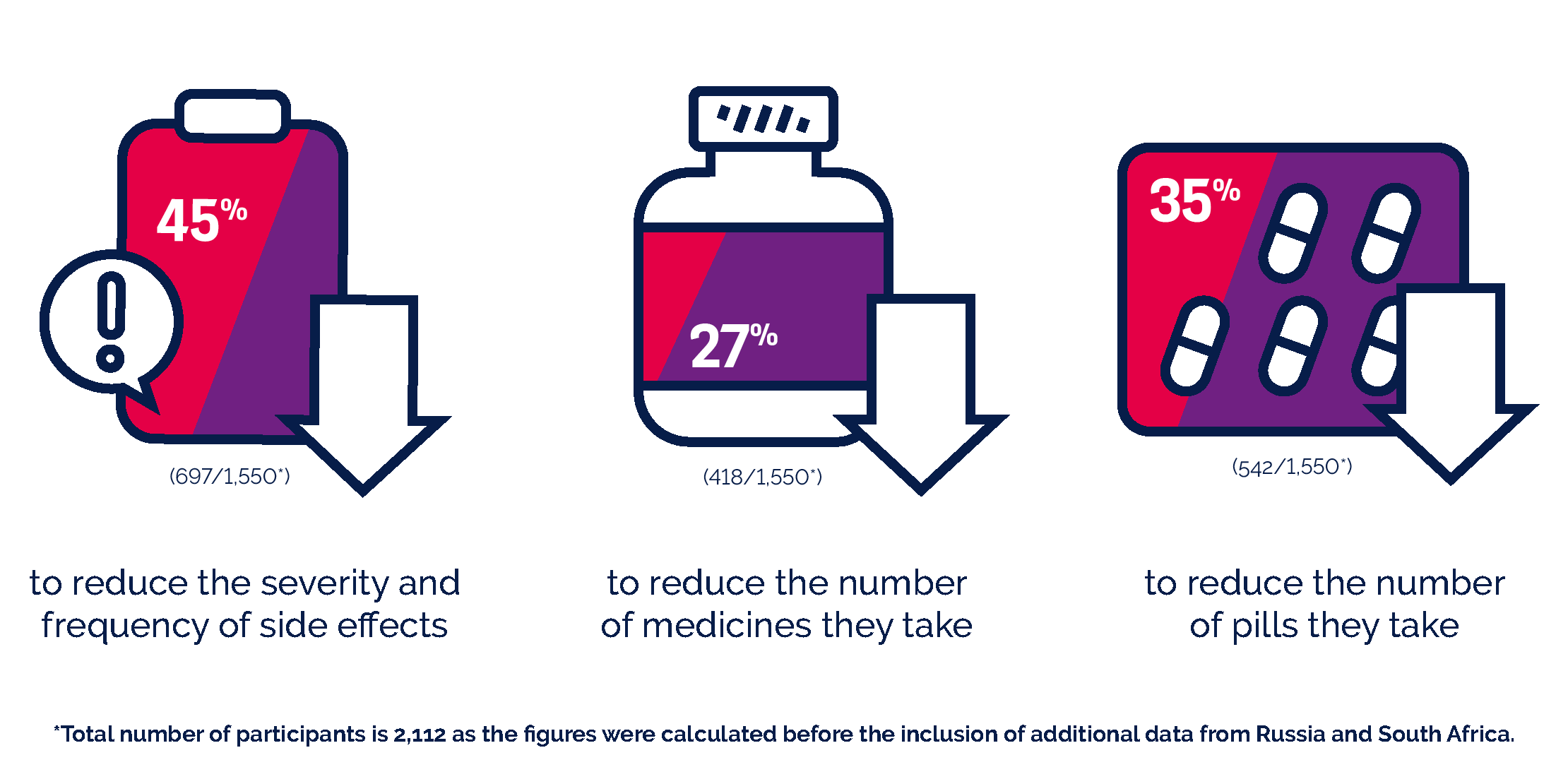
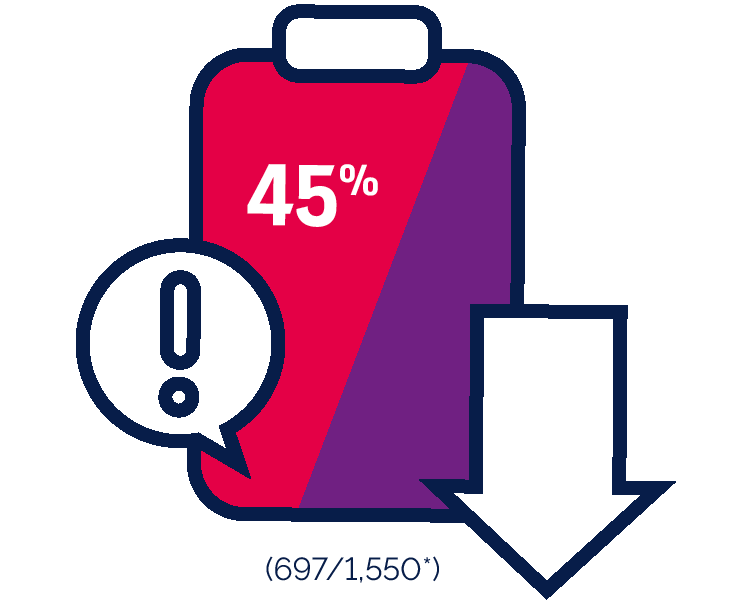
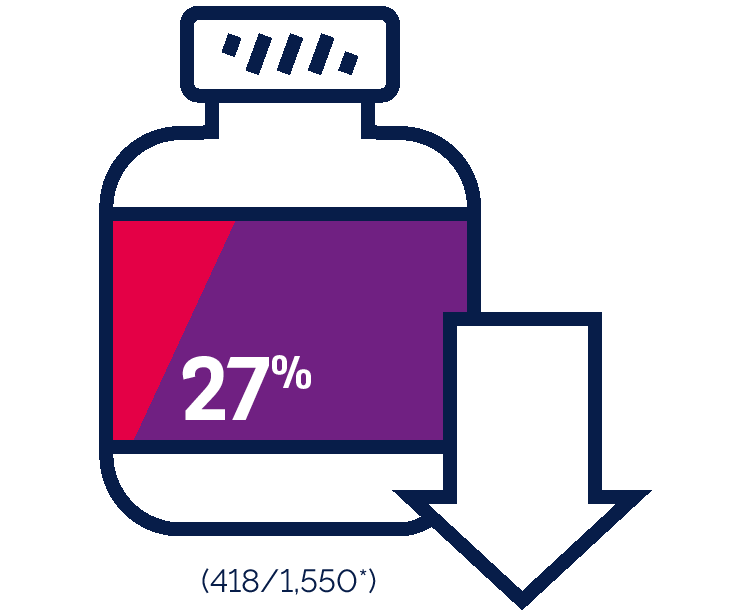
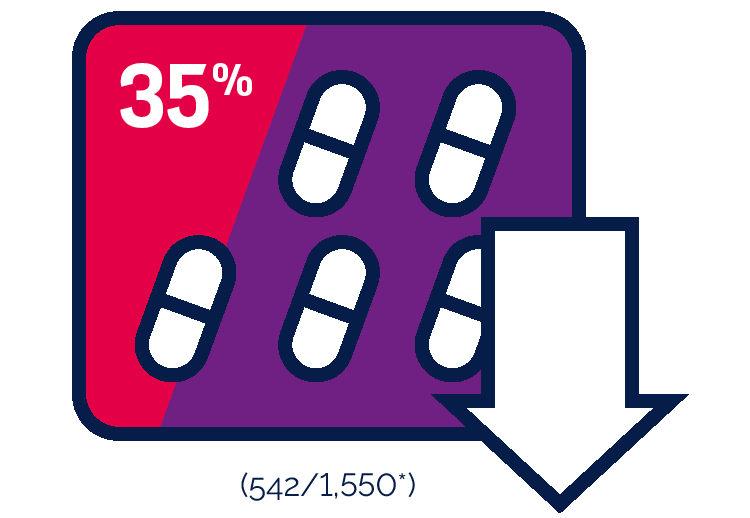
Guillermo’s story
Guillermo has experienced a number of changes in medication. When he started his HIV treatment he was taking three pills a day, now takes just one and feels in control of his care.
Romy’s story
Romy talks about how her treatment has changed over the years and how now taking her HIV medication has become a natural part of her daily routine.
Do you worry about the impact of taking HIV medication long-term?
As people living with HIV rely on medication to stay heathy, many are concerned about the impact of taking it over a lifetime. In the Positive Perspectives study, nearly 3 in 4 of the people surveyed said that as long as their HIV remained under control, they’d be open to taking HIV treatments with fewer medicines.8
If this rings true for you, your doctor will be able to advise you about the latest treatment approaches.
Is your HIV treatment affecting your lifestyle?
Sometimes, your HIV medicines may be affecting your life in ways that may not be obvious to you. Do you miss important events? Do you change when you eat because of your HIV medicines?
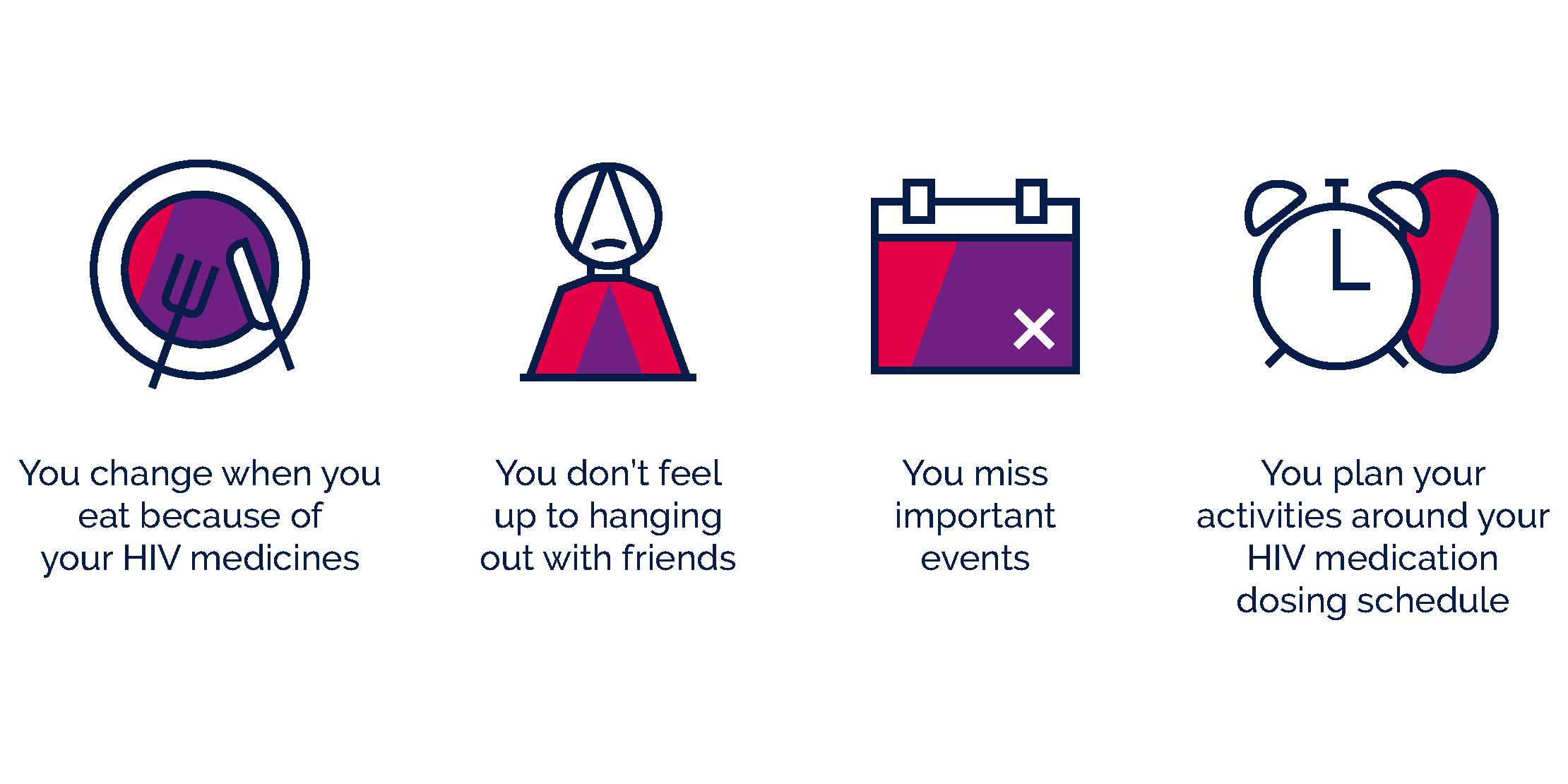




If you experience any of the above, let your healthcare team know. Together you can make sure your treatment continues to be the best option for you.
Speaking up about your treatment
Having switched treatments to find the right one for him, Robert offers his advice and support on talking to your doctor if you don’t feel your HIV treatment is right for you.
Understanding HIV drug resistance
Sometimes HIV can become resistant to antiretroviral medication. This means that a particular HIV drug, or class of drugs can no longer stop the virus from replicating itself and your viral load will become detectable again. Should this happen, your healthcare team will work with you to find alternative medication to help you get your HIV back under control.
Having good treatment adherence – taking your medication at the right time every day – is the best way to minimise the risk of HIV drug resistance. However, it is possible to have a strain of the virus which is already resistant to certain HIV antiretroviral drugs before you even begin treatment – it’s estimated that this happens to up to 10% of adults starting ART globally.1
If you have any concerns about HIV drug resistance or feel like your treatment routine isn’t working for you, speak to your healthcare team. For some handy hints to help you keep a good treatment routine, see tips to stay on track.
Jose’s story
Jose talks about how he and his healthcare team have tackled the problem of HIV drug resistance and how, after exhausting all other medication options, a newly developed treatment has given him a new lease of life.
NP-GBL-HVU-WCNT-210093 | August 2022


WHAT'S NEXT?
Different medicines can cause different side effects: short-term, longer term, drug-to-drug interactions. These may be the result of the drugs being used to treat HIV – not because you’re doing anything wrong.
Having a long, healthy life should be an achievable goal for most people living with HIV today.3 This may mean that your health and treatment needs change over time.
- Avert. What does undetectable mean? March 2019. Available at: https://www.avert.org/living-with-hiv/antiretroviral-treatment/what-does-undetectable-mean. [Accessed: November 2021].
- Schaecher KL. Am J Manag Care. 2013;19:S231–S237.
- National Health Service. HIV and AIDS. Available at: https://www.nhs.uk/conditions/hiv-and-aids/. [Accessed September 2021]
- Erdbeer G, et al. J Int AIDS Soc. 2014;17:19673.
- NAM AIDSMAP. One-pill-a-day HIV treatments. Available at: https://www.aidsmap.com/about-hiv/one-pill-day-hiv-treatments. [Accessed November 2021].
- NAM AIDSMAP. Types of antiretroviral medications. Available at: https://www.aidsmap.com/about-hiv/types-antiretroviral-medications. [Accessed September 2021].
- Avert. How HIV infects the body and the lifecycle of HIV. Available at: https://www.avert.org/about-hiv-aids/how-infects-body/ [Accessed November 2021.]
- Okoli C, et al. Prev Chronic Dis 2020;17:190359.
NP-GBL-HVU-WCNT-210090 | March 2022
Title
Word Type
Sub Heading
definitionTitle
Word Type
Sub Heading
definitionIf you get any side effects, talk to your doctor, pharmacist, or nurse. This includes any possible side effects not listed in the package leaflet. You can also report side effects directly via the GSK Reporting Tool link https://gsk.public.reportum.com/. By reporting side effects, you can help provide more information on the safety of this medicine.
If you are from outside the UK, you can report adverse events to GSK/ ViiV by selecting your region and market, here.


